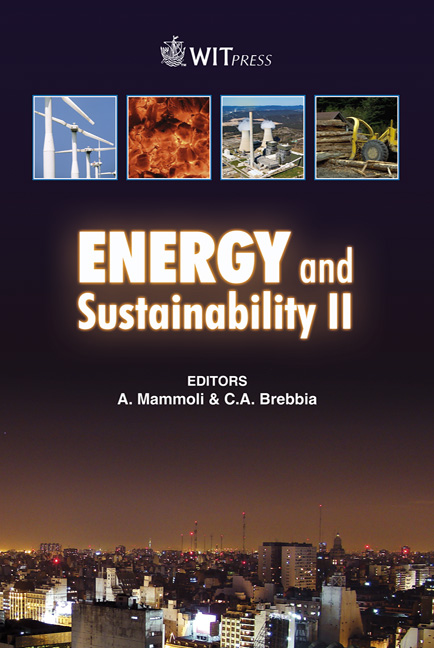Selection Of Renewable Energy Technologies In Africa: The Case Of Efficient Stoves In Malawi
Price
Free (open access)
Transaction
Volume
121
Pages
11
Published
2009
Size
479 kb
Paper DOI
10.2495/ESUS090111
Copyright
WIT Press
Author(s)
M. L. Barry, H. Steyn & A. C. Brent
Abstract
Malawi is one of the most densely populated and least developed countries in the world. Agriculture is the main source of external revenue and 90% of the population is employed in this sector. The population, 85% of whom live in rural areas, is mostly dependent on biomass in the form of firewood for their energy needs. One of the main challenges facing Malawi is deforestation and the use of efficient stoves provides an opportunity to reduce the dependency on firewood. The purpose of the case study presented in this paper was to validate factors for the selection of renewable energy technologies in Africa which were previously identified during a Delphi study. The focus of this case study was on the efficient stove program currently being undertaken in Malawi. Questionnaires were developed to structure discussions and interviews were conducted in Malawi with individuals from the Malawian Ministry of Energy, producers of efficient stoves and households that use efficient stove installations. Secondary data were also collected in the form of different reports on the project. The primary data obtained from the interviews and the secondary data in the reports were analyzed by comparing the information with the factors previously defined during the Delphi study. This paper discusses the results, which confirm that most of the factors identified during the Delphi study were indeed seen as important for project success during the selection of efficient stove technology in Malawi. Keywords: technology selection for developing countries, renewable energy, case study.
Keywords
technology selection for developing countries, renewable energy, case study





